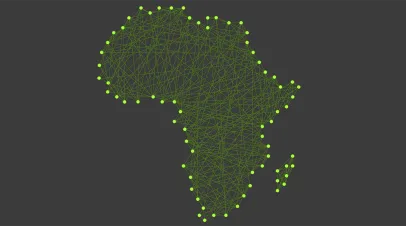The Migration Strategy Group on International Cooperation and Development
The Migration Strategy Group on International Cooperation and Development (MSG) is an initiative by the German Marshall Fund of the United States, the Bertelsmann Foundation, and the Robert Bosch Foundation.The Migration Strategy Group (MSG)
Set up in 2013, the MSG on International Cooperation and Development is an initiative by the German Marshall Fund of the United States, the Bertelsmann Foundation, and the Robert Bosch Foundation. The MSG brings together German and international policy stakeholders at regular intervals to discuss current migration-related foreign and development policy issues.
Aim and Formats of the MSG
The MSG provides a unique platform for solution-oriented policy-thinking related to the external dimension of migration policy; encouraging participants’ thinking and critical reflection through interactive, user-centric dialogue; promoting network-building between the public and other relevant sectors; and fostering thought leadership through publications. We hold sessions under the Chatham House Rule to encourage out-of-the-box thinking, leveraging the “wisdom is in the system” approach. We discuss potential policy options in a non-partisan, trustful environment that takes into account experiences, good practices, and data evidence.
Topics
The MSG has focused on labor migration and global competitiveness (2013–2015); policy coherence in Germany’s external migration policy (2016–2017); mixed migration movements with a geographical focus on sub-Saharan Africa (2018–2019); and the impact of digitalization and emerging technologies on migration policy and management (2019–2022).
Current Topic “Tech and Migration” (2019–2022)
Since 2019, the MSG has been focusing on the impact of digitalization and technological development on migration management and policy. While we will continue to focus on the German policy stakeholder community (2019–2022), we will additionally create international policy stakeholder exchanges (starting in 2022). The MSG will offer tech intro courses for international migration policy stakeholders, conduct international exchanges and networking opportunities, and advance international thought leadership in the emerging field of tech and migration.
Dialogue on Tech and Migration 2022 (DoT.Mig): Connecting the Dots and People
Become part of an international and interactive expert learning group of public administration, civil society and the private sector and engage in interactive and thought-provoking exchanges.
Editions
Expand All2019-2022 Tech and Migration
Digitalization and technological development will fundamentally change the international migration system. Artificial intelligence (AI) and machine learning are already being tested, used, and further developed in various areas—for instance, to better anticipate migration movements, or in humanitarian settings, or to better manage migration and mobility, for example, in visa processes or while crossing borders in digitally networked systems.
In this context, it is important for policy stakeholders to be aware of the nascent field of tech and migration and of new research and pilot projects to better understand, assess, and potentially regulate the impact of these developments on migration policy. Digital identities, big data, and predictive analytics are developments that will have very concrete implications for refugee and migration policy. This raises new political and ethical questions that must be taken into account in the development and shaping of the external dimension of European migration policy.
At the same time, the digital world is also creating new opportunities to re-think important aspects of international migration and mobility. Algorithmic matching projects for integration are being tested to foster a better labor market integration for refugees and asylum seekers, and online gig-economy projects have been initiated, for example, in refugee camps to enable digital livelihoods.
The MSG seeks to address how digitalization and emerging technologies can best serve migration and mobility while recognizing and minimizing the downsides of new technologies in migration management and policymaking.
2014 - 2015 Global Competitiveness
The Migration Strategy Group on Global Competitiveness was launched by GMF and the Robert Bosch Stiftung in 2013. It is based on the premise that demographic change, growing global competition for an increasingly mobile workforce, and development of migrant-sending countries demand holistic and attractive migration and integration policies that create "triple win" situations (for the receiving country, the sending country, and the migrant).
The Migration Strategy Group brings together key policy-stakeholders and decision-makers from the public and private sector, across different ministries and political departments from migrant-sending and receiving countries on both sides of the Atlantic. The aim is to develop a common understanding of designing and implementing coherent polices that unlock the full potential of migration. In 2013-14, the activities of the Migration Strategy Group focused on a case study for potential triple win labor migration frameworks between Germany and Morocco. In 2014 and 2015, the MSG continues to hold Regular interdisciplinary working group meetings for policymakers, issue experts, and private sector representatives assessing current labor migration frameworks and the strengths, weaknesses, and transferability of triple win policy models and coherent migration policies for Germany.







